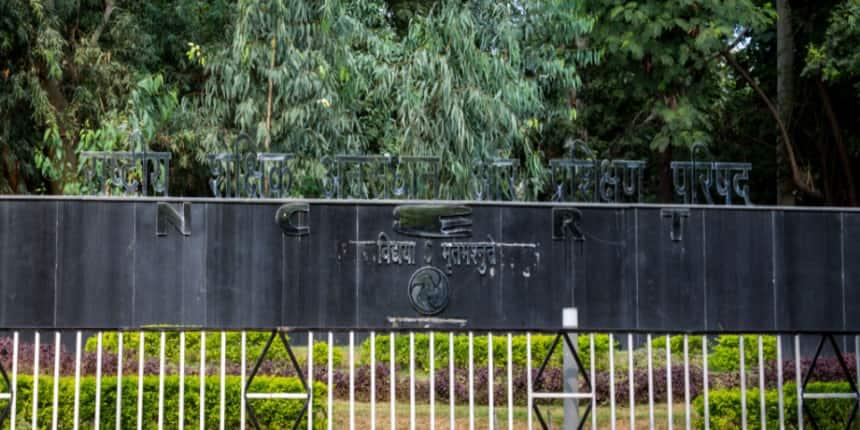NCERT Full Form - Know Everything About NCERT
NCERT Full Form - NCERT is a well-known name in Indian school education. The full form of NCERT is the National Council of Educational Research and Training. It is a self-governing organisation established by the Indian government in 1961. NCERT, with its headquarters in Delhi, was founded with the goal of improving the quality of school education.
This Story also Contains
- NCERT Full Form - Outline
- NCERT’s Foundation
- NCERT and its Regional Institutes of Education (RIE)
- NCERT's Objectives
- Study Materials Offered by NCERT
- Importance of NCERT Study Materials

NCERT brings together some of the world's most eminent academicians and scholars. The fundamental goal of NCERT is to provide a common educational system for all students across the country. Its goal is to promote cultural diversity while also encouraging unity via education across the country.
For CBSE students, NCERT has a variety of objectives, including printing textbooks and offering supplementary resources, educational kits, and multimedia digital tools, among others. Apart from CBSE, many state boards use NCERT textbooks. Not only that, but NCERT textbooks are recommended for various entrance and competitive exams, including IIT, NEET, and UPSC. This is due to the fact that the books are written in a very straightforward and brief manner. Let's take a closer look at NCERT and its goals.
NCERT Full Form - Outline
As previously stated, the full form of NCERT is the National Council of Educational Research and Training. Let's have a look at the outline of this educational body before we go into the specifics of NCERT:
Organization name | NCERT |
Full-Form | National Council of Educational Research & Training |
Nature of the Organization | Autonomous |
Established on | July 27, 1961 |
Began operations on | September 1, 1961 |
Established by | Ministry of Education, Govt. of India |
Headquarters | Sri Aurobindo Marg, New Delhi, India |
Official Website | ncert.nic.in |
NCERT’s Foundation
The Ministry of Education of the Government of India approved the foundation of NCERT on July 27, 1961. But the body began to function on September 1, 1961. The NCERT was created by combining seven existing government agencies, which are listed below:
Central Institute of Education (1947).
Central Bureau of Textbook Research (1954).
Central Bureau of Educational and Vocational Guidance (1954).
Directorate of Extension Programmes for Secondary Education (1958).
National Institute of Basic Education (1956).
National Fundamental Education Centre (1956).
National Institute of Audio-Visual Education (1959).
NCERT and its Regional Institutes of Education (RIE)
The National Council of Educational Research and Training, or NCERT, also includes the Regional Institute of Education, also known as RIE. The RIE was formed by the Indian government in 1963. It was created to provide a nationwide educational curriculum that would cover all of the country's regions.
There are currently five RIEs, namely:
RIE Mysore
RIE Bhubaneswar
RIE Bhopal
RIE Ajmer
NE-RIE Shillong
NCERT's Objectives
NCERT's primary objectives are as follows:
NCERT is an educational research organisation. It encourages and conducts education-related research.
It is also in-charge of experimenting with educational concepts and procedures.
NCERT provides support to the government in the areas of education and academics.
It works with both national and international educational institutions.
The National Curriculum Framework, syllabi, textbooks, and other learning-teaching materials for school-level education are all developed by the NCERT.
It prepares and publishes model textbooks, supplementary materials, newsletters, journals, and instructional kits, as well as generates multimedia information tools, among other things.
It is responsible for providing teacher training programmes.
Study Materials Offered by NCERT
Some of the essential NCERT study materials are enlisted beneath.
NCERT Syllabus
NCERT Books
NCERT Solutions
NCERT Syllabus
NCERT Syllabus is used in every CBSE-affiliated school. To boost their learning and exam preparation, students can readily download and refer to the NCERT syllabus of their individual classes.
NCERT Books
The NCERT Books are designed for students in classes 1 to 12. All of the exam questions are thoroughly addressed in the NCERT textbooks. CBSE students do not need to look up for any topics elsewhere.
NCERT Solutions
All of the problems in the NCERT textbooks are answered in the NCERT solutions. It teaches students how to respond appropriately to questions. Students can easily pass with high marks if they follow the NCERT solutions.
Importance of NCERT Study Materials
NCERT textbooks are recommended by topper students and teachers as one of the greatest resources for learning the fundamentals.
Students studying under other boards can also use the NCERT books to prepare for a variety of exams.
The NCERT syllabus for Classes 11 and 12 is used in national-level engineering and medical admission exams such as JEE Main and NEET.
Those preparing for UPSC and other government exams, familiarity with the NCERT texts is essential.
Important - Check the Complete List of Full Forms
Frequently Asked Questions (FAQs)
The full form of NCERT is the National Council of Educational Research and Training.
Yes, NCERT textbooks follow the CBSE's most recent syllabus design to help students learn and achieve the best results in their exams.
The majority of the state-board syllabi are based on the NCERT curriculum. As a result, referring to the NCERT books would undoubtedly assist them in passing their board exams. Students must, however, complete their board-recommended textbooks first.
NCERT books are extremely helpful in preparing for a variety of competitive exams, including NEET, JEE, UPSC, and others.
Applications for Admissions are open.
As per latest syllabus. Physics formulas, equations, & laws of class 11 & 12th chapters
JEE Main Important Chemistry formulas
Get nowAs per latest syllabus. Chemistry formulas, equations, & laws of class 11 & 12th chapters
JEE Main high scoring chapters and topics
Get nowAs per latest 2024 syllabus. Study 40% syllabus and score upto 100% marks in JEE
JEE Main Important Mathematics Formulas
Get nowAs per latest syllabus. Maths formulas, equations, & theorems of class 11 & 12th chapters
